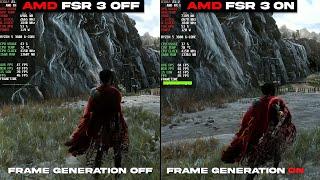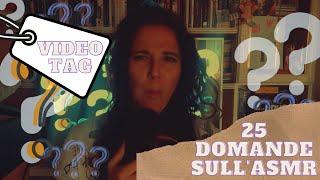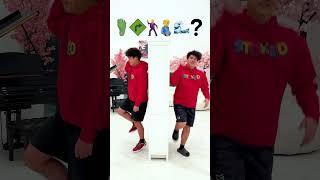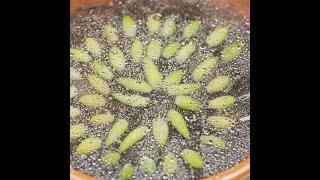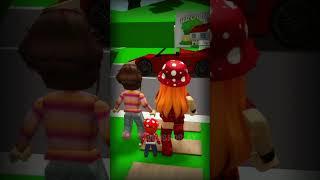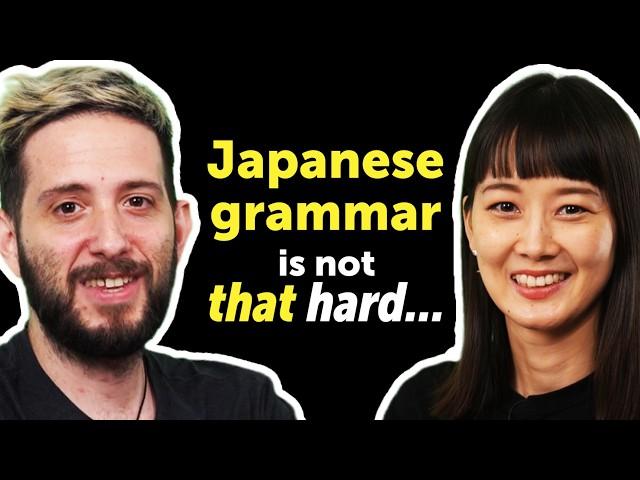
Japanese Grammar Made Easy #1 | How to Say "I Want" in Japanese
Комментарии:

This series is going to be another hit😊. Let's study and revise together everyone 😄.
Ответить
Is this THE 'Eric' in the live comments section? 😅
Ответить
Love it, but some subtitles for the correction would be super helpful
Ответить
Che , pero suena muy Argento ese muchacho ....
Ответить
I like this! He is just like us learning Japanese and we also learn from the little mistakes he made and you explaining it! Can't wait for next one!
Ответить
This guy barely speaks English now he's learning japanese 🤨
Ответить
😁したかったことをしたのでしたいことをすることがあるね。
Ответить
❤
Ответить
who's the new guy!
Ответить
Risa is like perfection in human form.
Ответить
If there were any subtitles, or visual examples, or clarifications, that would be extremely helpful.
Ответить
If you said 食べたいです、is it wrong to say instead: 食べるが欲しいです?
Ответить
This is very helpfull
Ответить
More lessons like this please.
Ответить
natsubate would probably be best translated as "heat stroke" or "heat sickness" it isn't important but it thought you might like to know.
Ответить
Just a little too fast for me. I'm not at that level yet. I'll come back when I get better
Ответить
Where is the subtitles 🤯
Ответить
This is so helpful and cool. I’m glad that in the video, they are using someone who is also learning Japanese. A lot of times you see channels that have both parties already knowing Japanese. Not that it’s a problem but it makes it hard to see yourself in the video. Job well done and Risa is a great teacher! 💮
Ответить
Risa san ni aitai 😊
Ответить
¿Es argentino? Qué horrible provincia el inglés 😮😮😮
Ответить
Thank u for the subtitles guys
Ответить
So nice to see sensei risa
Ответить
The reason (as I understand it) why the particle ga (が) is not used but the particle wo (を) is used is that the ga particle is pointing to who or what is doing the action, like if you had other choices other than to study Kanji, the ga particle would point to one of those choices. The wo particle will attach a verb or negative verb to a noun. Kanji being the noun and not studying, the verb.
Ответить
that was pretty great
Ответить
Love the Friends reference I got it immediately
Ответить
暑いので午後はお昼寝したいです。
Ответить
For English speakers, it's not that hard. It's super hard. If you don't know anything about Japanese conjugations, then you've learned basically nothing from this clip. In English, it's super easy. When you want to eat something, you just say "I want to eat." No conjugation! "I want to go." "I want to swim." See how easy it is? "I want to" and then verbs.
Let's do it in Japanese. A basic form of the verb, eat is 食べる(taberu) but you can't just say "食べる(taberu)+たい(tai). A proper conjugated form is "食べたい(tabetai)” and to be polite(always a good idea when you visit Japan) "食べたいです(tabetaides)". When you want to eat something, something comes before "食べたいです(tabetaides)". "Sushi tabetaides"(=I want to eat sushi). Just say thing(s) you want to eat first, and then "tabetaides" such as "Ramen tabetaidesu".
In Japan, you'd want to go somewhere as much as you'd want to eat something. Somewhere comes before "want to go"(="行きたいです(ikitaides)"). If you want to go to Tokyo, then you'd say "Tokyo ikitaides" or any other place "Shibuya ikitaides" "7/11 ikitaides"
You've just learned the two most useful Japanese phrase patterns when you visit Japan.👍

I laughed at the Unagi (friends reference) part
Ответить
Eddie in Japanese means collar..... Bro- unless your Rainman, you did not learn Japanese in that depth in 4 months- Are you living there?
Ответить
🙇🏻♂️🙇🏼♀️
Ответить
Frenchie and Kimiko.
Ответить
♥️
Ответить
You’ve only been studying for four or five months?!?! You’re exceptional!! Even though it’s a little discouraging for how long I’ve been studying, but it’s extra motivating to keep pushing forward. A great conversation for a beginner like me to listen to. Thank you both!
Ответить
I really like this format!x3
Feels like I'm back at school. I always hoped another student would ask the questions I have.xD
It's pretty easy to remember this way!x3




